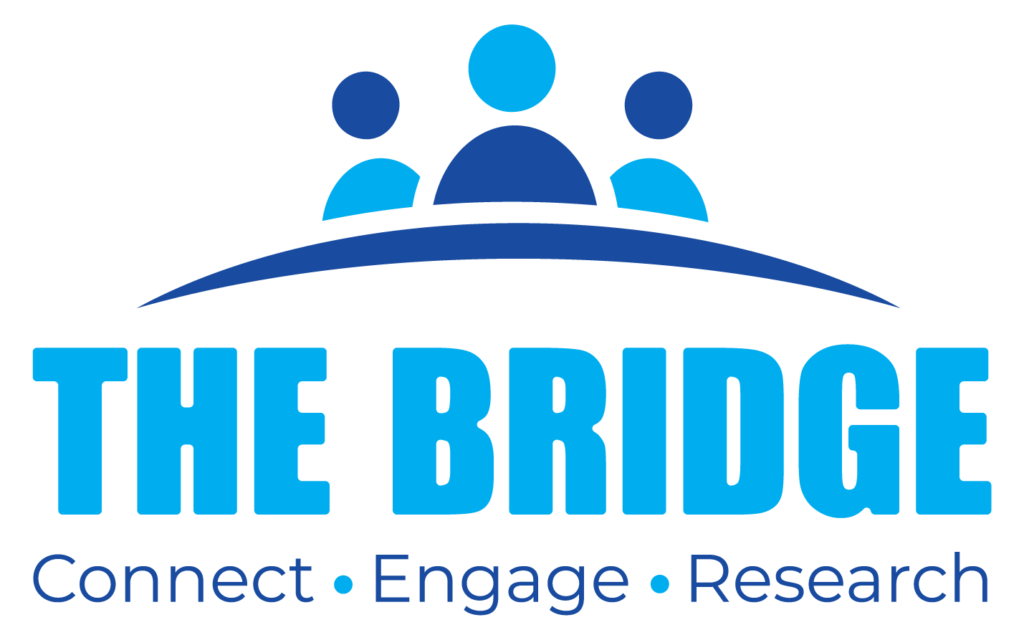HPI
The Healthy People Initiative is the successor of the Management and Point-of-Care for Tobacco
Dependence (PROMPT) project and is the Bridge’s innovative flagship project that puts into
action the Bridge Model™, a comprehensive community-based care model.
Using rigorous science, we are testing and providing a proof of concept of the Bridge Model™.
We will be partnering with the Parkdale Activity Recreation Centre (Toronto) to recruit 200
racialized, Indigenous, unhoused, and low-income participants in a community-based tobacco
dependence treatment and management project that incorporates tailored wraparound supports,
peer to peer-based recovery supports, and primary care services designed to improve the health
and wellbeing of participants.
Relevant Publications
Assessing community (peer) researcher’s experiences with conducting spirometry and being engaged in the ‘Participatory Research in Ottawa: Management and Point-of-care for Tobacco-dependence’ (PROMPT) project
Background
The Ottawa Citizen Engagement and Action Model (OCEAM) used a Community Based Participatory Action Research (CBPAR) approach by involving the most at-risk urban population. Community (peer) researchers participated in every step of the study despite the multiple challenges.
Objective
To assess the community researchers’ training and experiences in a CBPAR project, PROMPT: Participatory Research in Ottawa: Management and Point-of-care for Tobacco Dependence.
Method
Four community researchers were recruited, representative of the PROMPT project’s target population with current or past poly-substance use; smoking tobacco; and/or being homeless or at-risk for homelessness. The community researchers participated in all phases of PROMPT, including study design, development of questionnaires, participant recruitment, administering consent forms and questionnaires, as well as hand-held spirometry after rigorous training. To assess their knowledge and comfort level with spirometry testing after standardized training, questionnaires were administered pre- and post-training. In turn, to assess their overall experience, interviews were conducted at the end of study completion.
Results
All community researchers underwent small-group training sessions including presentations, discussions and hands-on practice adapted from standardized training material prepared for health care professionals. Spirometry training was included in all sessions. Self-perceived knowledge and confidence in administering spirometry, as well as skill-testing score averages improved between the pre- and post-training questionnaires. Overall, all the community researchers had a fulfilling experience participating in the project.
Conclusion
Despite challenges, involving community researchers with lived experience is feasible, satisfying and productive even in the most marginalized populations. Standardized spirometry training of community researchers’ representative of the PROMPT target population, with no healthcare educational background, was feasible and effective in improving knowledge, confidence and readiness to administer spirometry.
Management and Point-of-Care for Tobacco Dependence (PROMPT): a feasibility mixed methods community-based participatory action research project in Ottawa, Canada
Objective
To determine the feasibility of a Community-Based Participatory Tobacco Dependence Strategy (PROMPT) in the inner city population of Ottawa (Canada).
Design
A feasibility mixed methods prospective cohort study following principles of community-based participatory action research.
Intervention
Recruited 80 people who use drugs, followed them for 6 months while providing access to counselling, nicotine replacement therapy and peer-support in a… community setting.
Setting
Community research office in downtown Ottawa, adjacent to low-income housing, shelter services and street-based drug consumption.
Primary outcome
Retention rate at 6-month follow-up.
Secondary outcome
Biochemically validated 7-day point prevalence smoking abstinence at 26 weeks, self-reported abstinence in the past 7 days with exhaled carbon monoxide ≤10 ppm.
Results
The average age of participants was 43.8 years. The 6-month follow-up rate was 42.5%. The mean number of smoking years reported was 27.3 years. The participants were 70% male, 33.7% reported less than a high-school education, 21% identified as Indigenous and 43.8% reported an income between US$1000 and US$1999 per month. The baseline mean daily cigarette use was 20.5 and 9.3 cigarettes at study end, with mean reduction of 11.2 cigarettes at 6 months (P=0.0001). There was a considerable reduction in self-reported illicit substance use (18.8%), including a reduction in the opioids heroin (6.3%), fentanyl (2.6%) and Oxycontin (3.8%). The study findings also reveal psycho-socioeconomic benefits such as improved health, return to work and greater community engagement.
Conclusions: The PROMPT project describes socioeconomic variables associated with tobacco and poly-substance use. A programme focused on tobacco dependence, easily accessible in the community and led by community peers with lived experience is feasible to implement and has the potential to support positive life changes. PROMPT’s patient engagement model is an effective harm-reduction strategy for the growing opioid use crisis and can improve the health outcomes of marginalised at-risk populations worldwide.
The Ottawa Citizen Engagement and Action Model (OCEAM): A Citizen Engagement Strategy Operationalized Through The Participatory Research in Ottawa Management and Point-of-Care of Tobacco (PROMPT) Study
The PROMPT study is a community-based research project designed to understand the factors which affect smoking as well as ways to manage, reduce and quit smoking among people who use drugs in Ottawa.
There is strong medical evidence that smoking tobacco is related to more than two dozen diseases and conditions. Smoking tobacco remains the leading cause of preventable death and has negative health impacts on people of all ages. Although Ottawa has one of the lowest smoking rates in Ontario (12 %), major differences exist, with approximately a 96 % smoking rate among those who use drugs in the city of Ottawa.
To address this inequity, we recruited and trained four community research peers who were representative of the study target population (ex- or currently homeless, insecurely housed or multi-drug users). We designed the ten-step Ottawa Citizen Engagement and Action Model (OCEAM) for the PROMPT study. In this paper we have described this process in a step-by-step fashion, as used in the PROMPT study. The eighty PROMPT participants are being followed for six months and are being provided with free and off-label Nicotine Replacement Therapy (NRT).
